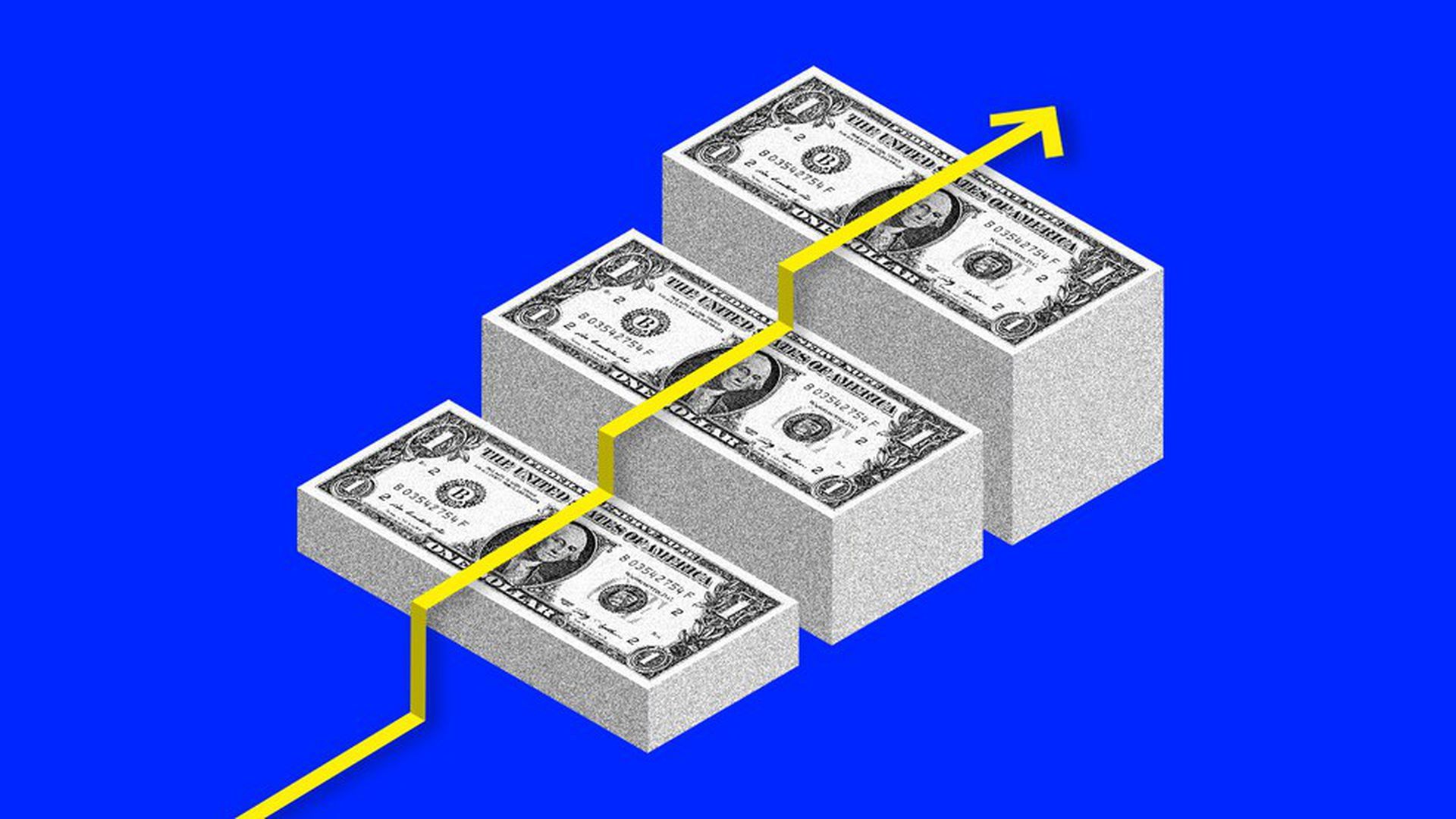A case for large wage hikes
Add Axios as your preferred source to
see more of our stories on Google.

Illustration: Rebecca Zisser/Axios
The Fed is mandated to worry about inflation. But the risk of runaway prices seems so remote that, at least for now, some Fed officials and leading economists are embracing what for decades has been rejected as heretical — allowing wages to keep rising without stomping on them with higher interest rates.
Between the lines: A question, however, is whether — given decades of largely flat wages — the Fed should go further to encourage companies to more aggressively raise their employees’ pay.
Driving the news: U.S. workers have had a 6-month run of real pay gains. Ordinarily, that would be a signal for the Fed, alert always to "wage inflation," to contemplate hiking interest rates and incentivize companies to slow the increases.
But this time, several Fed officials suggest they are open to extended real wage hikes, a sentiment that — should it become bank policy — could have both economic and political impact if living standards rise in places that since the 1980s have seen mostly decay.
Officially speaking, the Fed has no mandate to move wages. But it ends up influencing pay through its interest rate policy.
- Meeting with reporters on May 16, Neel Kashkari, president of the Minneapolis Fed, said that if wages rise, "we shouldn't respond very much," per Reuters.
- Two days earlier, Esther George, an inflation hawk and president of the Kansas City Fed, signaled support for wage increases. And, in remarks last month, Fed vice chairman Richard Clarida said pay gains are not pushing up inflation.
- Last week, Reuters' Howard Schneider reported that the Fed as whole is reviewing how it treats labor and inflation — "a chance to lean into a new consensus that a low unemployment rate alone does not tell the whole story of the economy."
The big picture: The remarks come against the backdrop of some concern among Fed officials about deflation — avoiding an economy with no wind in its sails, and recession. Several governors have embraced the idea of targeting inflation even above the bank's 2% target in order to make up for below-target months and years. Rising wages would be part of the accommodation to above-target inflation.
What's next: I surveyed a small group of economists to ask whether the Fed should embrace not just more months of wage gains, but higher increases, in line with those of prior decades. The answer I got back was mostly “yes” — that would be a “fine idea,” as Lawrence Summers, the former treasury secretary, put it. But there was much hand-wringing on what the Fed could actually do.
- "The question is what leverage the Fed has over wage-setting," Summers said. "The usual view is the main leverage comes from the Fed driving unemployment down. It's hard to imagine Fed jawboning employers."
- Jason Furman, chief economist for President Obama, agreed that the only thing the Fed can do is keep interest rates low."
- Glenn Hubbard, chief economic adviser to President George W. Bush and now dean of Columbia University's business school, said "the best thing the Fed [could] do for wage growth is to continue to let the job market run hot."
But Karen Dynan, chief economist for the Treasury Department in the Obama administration, said the Fed has the power of its word — economic and financial actors often hang on the words of the Fed, especially Fed chairman Jerome Powell.
- "Fed officials have taken some steps in the direction of encouraging faster wage growth by making it clear that there is room for wages to grow without pushing price inflation to undesirably high levels. [But] given that price inflation is still falling short of the target, I think the messaging could be a little stronger on that front," Dynan said.
